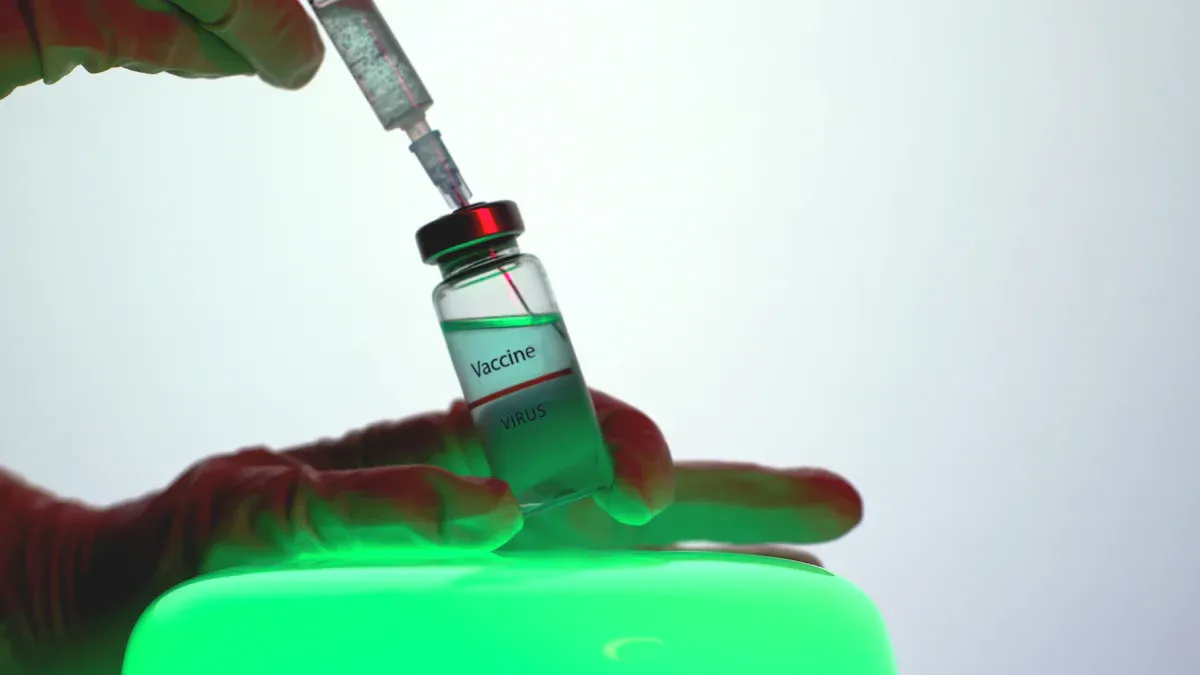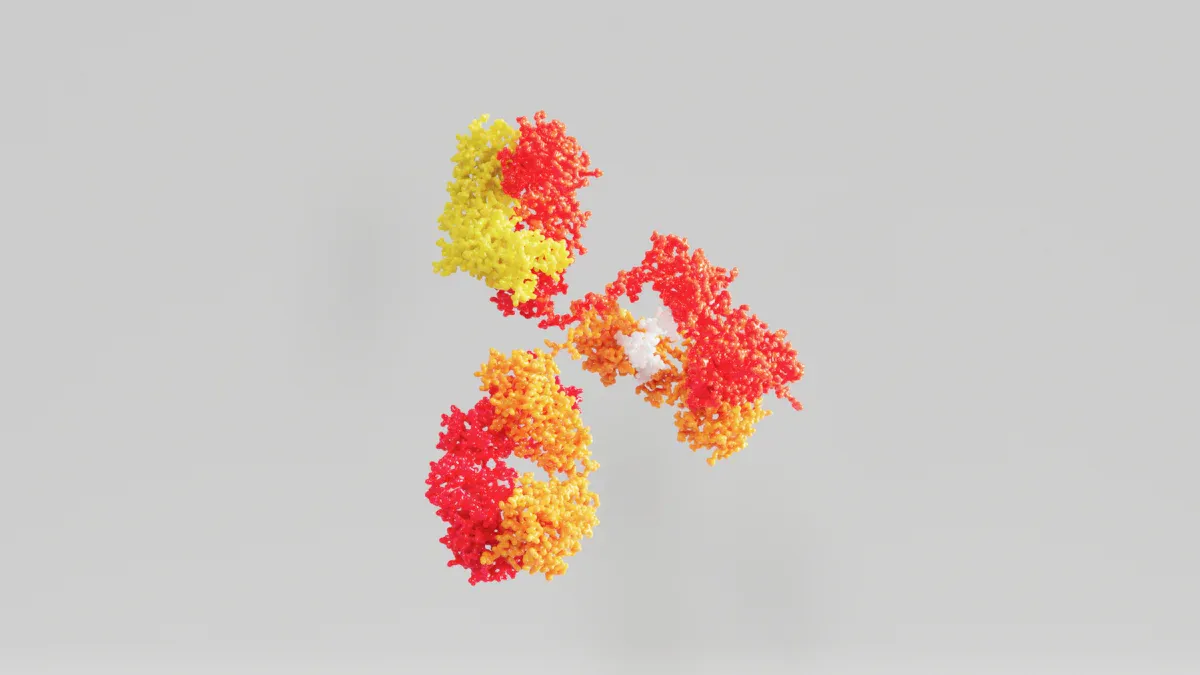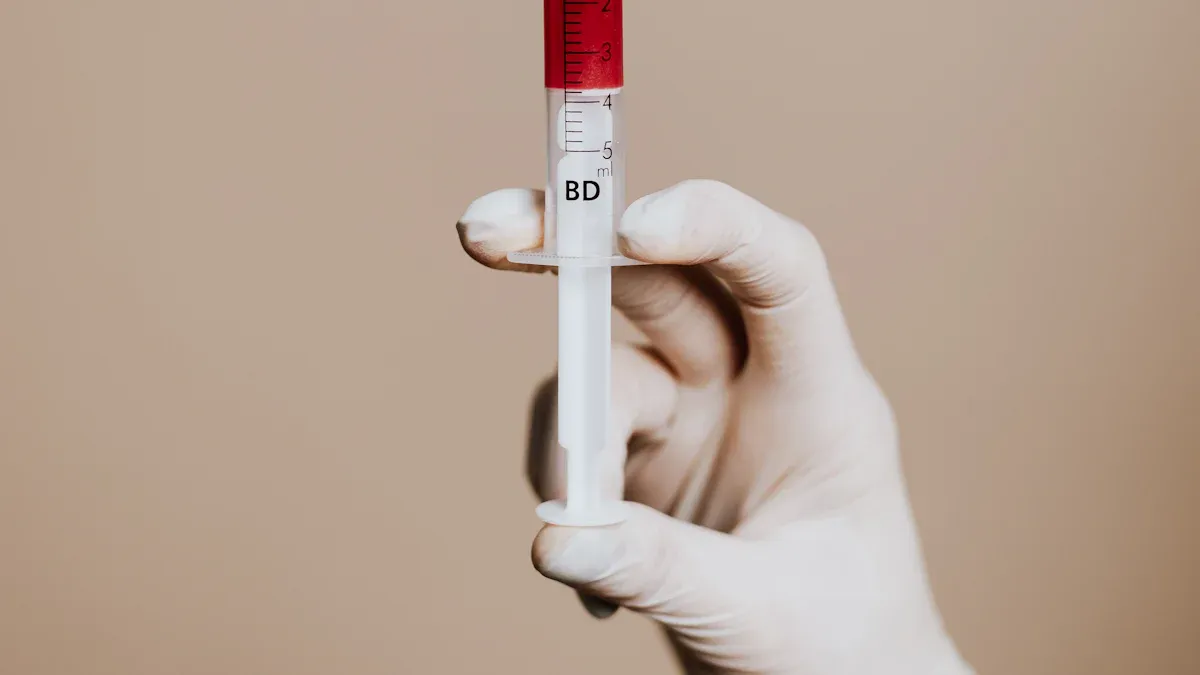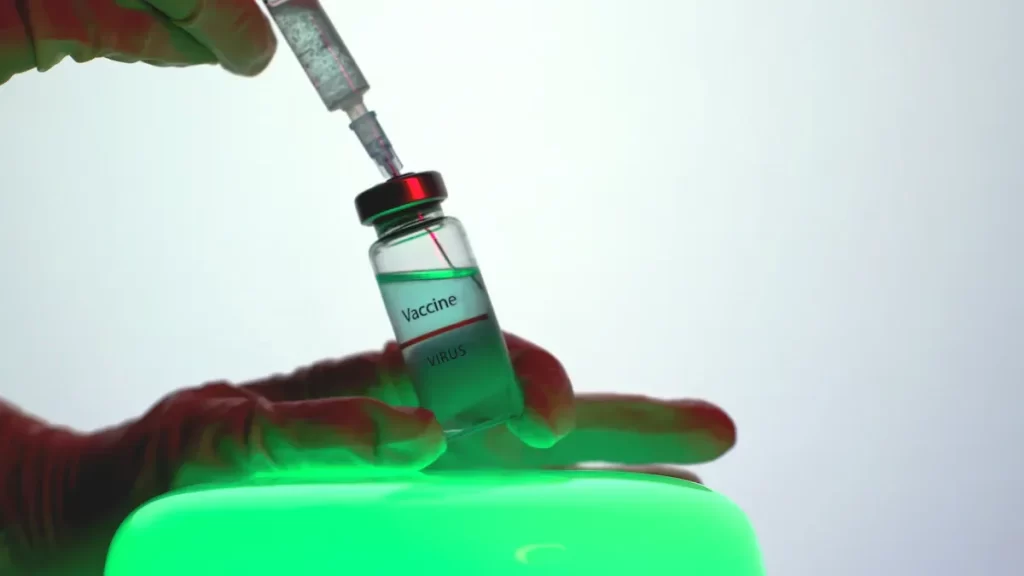News & Events
What a Hep B Core Antibody Result Means for Your Health

Your hep b core antibody result can show if you have a current, past, or long-term hepatitis B infection. Sometimes, this result means you had hepatitis before and your body fought it off. Other times, it may point to an active infection. You need other hepatitis B markers and your health history to understand your result.
- Testing for hepatitis b core antibody can sometimes give false results. Studies show false-reactivity rates can range from 16% to 75%.
- Sometimes, the core antibody is the only marker, which can make the result hard to interpret.
If you feel unsure, learning more can help you feel confident about your health.
Key Takeaways
- A positive hepatitis B core antibody result indicates past or current exposure to the virus. It is essential to follow up with your doctor for further testing.
- Understanding the difference between IgM and IgG antibodies helps determine if the infection is recent or long-term. IgM suggests a new infection, while IgG indicates past exposure.
- False-positive results can occur, so it’s crucial to discuss your medical history and any recent treatments with your doctor to clarify your results.
- Regular monitoring and additional tests are vital for those with chronic hepatitis B. This helps manage your health and prevent liver damage.
- If you experience symptoms like yellow skin, dark urine, or stomach pain, seek medical attention immediately. These may indicate liver issues related to hepatitis B.
Hep B Core Antibody Basics
What Is Hepatitis B Core Antibody
You may wonder what the hepatitis b core antibody means for your health. This antibody forms when your immune system reacts to the core part of the hepatitis b virus. If you have the hep b core antibody, it shows that your body has responded to hepatitis b at some point. Doctors use this marker to help figure out if you have a current infection, a past infection, or if you have cleared the virus. The hep b core antibody does not appear after vaccination, so it only shows up if you have had the virus itself.
How Detection Works
Hepatitis b testing looks for different antibodies in your blood. The hep b core antibody usually appears two to four weeks after the hepatitis b surface antigen shows up. During the “window period,” the surface antigen disappears before the surface antibody appears. At this time, the core antibody can help doctors spot an infection. IgM antibodies show up first and fade within six months if the infection is acute. IgG antibodies can stay in your blood for life. Screening for hepatitis b core antibody helps doctors understand your infection stage.
Tip: If you get hepatitis b testing, ask your doctor about the types of antibodies they are checking. This can help you understand your results better.
Why It Matters
Hepatitis b core antibody testing plays a key role in diagnosing hepatitis b. You can see how important this is by looking at how doctors use it:
- The hepatitis b core antibody shows if you have had hepatitis b before or if you have it now.
- IgM antibodies help doctors tell if you have a new infection or a long-term one.
- Understanding these antibodies helps doctors figure out what stage of hepatitis b you are in and how your immune system is reacting.
Screening for hepatitis b core antibody is common in many places. The rates of hepatitis b infection vary by region and population group. Here is a table that shows how often hepatitis b core antibody appears in different areas:
| Geographic Region/Population Group | Prevalence Rate (%) | Mode of Transmission |
|---|---|---|
| High prevalence areas | ≥8% (10-20%) | Perinatal |
| Vietnam | Up to 30% | Perinatal |
| Low prevalence areas | <20% (0.1-2%) | Sexual, Percutaneous |
| Intermediate prevalence areas | 3-5% | Sexual, Percutaneous, Delivery |
| Specific populations (e.g., Alaskan Eskimos, Asian Pacific Islanders) | Higher rates observed | Varies |
Doctors use hepatitis b core antibody testing to help tell the difference between acute and chronic hepatitis b. Some studies show that certain levels of IgM antibodies and hepatitis b DNA can help doctors make this distinction. Screening and testing for hepatitis b core antibody give you and your doctor important clues about your health.
Types of Hepatitis B Antibodies

Core vs. Surface Antibodies
You may see two main types of hepatitis B antibodies on your test results: core antibodies and surface antibodies. Each type tells you something different about your health.
- Core antibodies (anti-HBc) show that your body has met the hepatitis B virus before. This marker does not mean you are immune or protected. You need more tests to know if you have an active infection or if you cleared the virus.
- Surface antibodies (anti-HBs) mean your body has protection against hepatitis B. You can get these antibodies from a vaccine or after you recover from an infection.
Here is a table that compares the diagnostic significance of each antibody:
| Antibody Type | Diagnostic Significance |
|---|---|
| anti-HBc (Hepatitis B core antibody) | Indicates past exposure to the virus; does not indicate current infection or immunity. Requires further testing for complete understanding. |
| anti-HBs (Hepatitis B surface antibody) | Indicates protection against the virus, either from vaccination or recovery from past infection. Confers immunity. |
Note: If you have both core and surface antibodies, your doctor may check for other signs to see if you had hepatitis B before or if you are now immune.
IgM and IgG Differences
Your hepatitis B core antibody test may show IgM or IgG types. These help doctors know if your infection is new or old.
- IgM core antibody appears first. If you have this antibody, you likely have a recent or acute infection.
- IgG core antibody stays in your blood for years. This marker means you had hepatitis B before or you have a long-term infection.
The table below shows how these antibodies guide diagnosis:
| Antibody Type | Indication |
|---|---|
| anti-HBc IgM | Confirms acute or recent hepatitis B infection |
| anti-HBc total | Indicates past or chronic hepatitis B infection |
| HBsAg | Differentiates between past/resolved and chronic hepatitis B |
| Negative anti-HBc total | Indicates absence of any hepatitis B infection |
Tip: If your test shows IgM, you should talk to your doctor soon. This result may mean you have a new infection and need care.
You can use these antibody results to understand your hepatitis B status. Your doctor will look at all your markers to give you the best advice for your health.
Interpreting Your Hepatitis B Core Antibody Result
Common Result Patterns
When you look at your hep b core antibody result, you may see different patterns. These patterns help you and your doctor understand your hepatitis status. You can use the following table to see what each pattern might mean:
| Serological Markers | Interpretation |
|---|---|
| Positive anti-HBc, Negative HBsAg, Positive anti-HBs | Resolved infection (past infection) |
| Positive anti-HBc, Positive HBsAg, Negative anti-HBs | Current or chronic infection |
| Positive HBsAg, Positive IgM anti-HBc | Acute infection |
You may also see an isolated positive result for hep b core antibody. This pattern means you have a positive anti-HBc but negative HBsAg and negative anti-HBs. Doctors see this pattern in several situations:
| Interpretation of Isolated anti-HBc Pattern | Description |
|---|---|
| Resolved infection with waning immunity | Most common reason for isolated anti-HBc pattern. |
| False-positive anti-HBc | Occurs in low prevalence populations or due to assay issues. |
| Low level chronic infection (occult HBV) | Presence of HBV viremia not detected by standard tests. |
| Resolving acute infection | Occurs during the window period of acute HBV infection. |
You may notice that hepatitis b core antibody results can be complex. You need to look at all hepatitis b panel results to get a clear diagnosis.
What Your Result Means
Your hep b core antibody result can mean different things. If you have a positive result, you may have a current or past hbv infection. Doctors use other hepatitis b markers to help you know if your infection is acute, chronic, or resolved.
- If you have positive anti-HBc and positive HBsAg, you likely have a current or chronic infection.
- If you have positive anti-HBc and positive anti-HBs, you probably had hepatitis b before and cleared the virus.
- If you have positive HBsAg and positive IgM anti-HBc, you may have an acute infection.
You need to check your liver enzymes, such as AST and ALT, to see if you have liver inflammation. Higher anti-HBc levels often mean more severe liver inflammation. The following table shows how anti-HBc levels and liver markers relate to infection stages:
| Phase | Correlation with AST | Significance |
|---|---|---|
| IC | r = 0.432 | P = 0.002 |
| ENH | r = 0.356 | P = 0.008 |
| Finding | Correlation | Significance |
|---|---|---|
| Higher anti-HBc levels | Associated with more severe liver inflammation | P < .001 |
| ALT levels | Poor correlation with histological activity | N/A |
| Anti-HBc levels | Vary across infection stages | N/A |
You may also want to know how your liver fibrosis stage relates to your hepatitis b core antibody result:
| Patient Group | Correlation with Liver Fibrosis Stage | Significance |
|---|---|---|
| HBeAg (+) | r = 0.233 | P < 0.001 |
| HBeAg (−) | r = 0.240 | P < 0.001 |
Doctors use these findings to help you understand your hepatitis b diagnosis and decide if you need treatment for chronic infection or monitoring for liver inflammation.
Tip: Always ask your doctor to explain your hepatitis b panel results and liver enzyme levels. This helps you know if you have a current or past hbv infection or if you need more tests.
Isolated Positive Core Antibody
You may see an isolated positive result for hep b core antibody. This means you have positive anti-HBc but negative HBsAg and negative anti-HBs. Doctors call this the “isolated anti-HBc” pattern. You may wonder what this result means for your health.
Dr. Nina Kim explains that you may see an isolated hepatitis b core antibody in several clinical scenarios. You may have had a resolved infection with waning immunity, a false-positive result, a low level chronic infection (occult hepatitis b), or you may be in the window period of resolving acute infection.
You may need further evaluation if you have an isolated positive result. Studies show that 88.4% of patients with isolated positive hepatitis b core antibody results tested positive for HBV DNA when screened for occult hepatitis b infection. You may need HBV DNA testing to check for hidden virus in your blood.
- You may see higher rates of hepatitis C virus coinfection in people with isolated anti-HBc compared to those with positive anti-HBs.
- You may find that isolated anti-HBc is more common among HCV RNA-positive patients (22%) than HCV RNA-negative patients (13%).
Doctors sometimes misinterpret hepatitis b core antibody results. You may see high false-positive rates for anti-HBc tests. If you have anti-HBc alone or occult hepatitis b, you may benefit from vaccine boosting to help your immune system control the virus. If you have anti-HBc and anti-HBs, you are considered to have cleared hepatitis b, but some virus may still remain in your liver cells.
You may face risks if you need immunosuppressive therapy. The following table shows risk factors for hepatitis b reactivation:
| Risk Factor | Description |
|---|---|
| High HBV DNA (>2,000 IU/mL) | Strongest risk factor for reactivation in patients with positive hepatitis B markers. |
| HBsAg-positive patients | 8-fold higher risk of reactivation compared to isolated anti-HBc IgG positive patients. |
| HBeAg-positive status | Increased risk of reactivation compared to HBeAg-negative patients. |
| Anti-HBs antibody positivity | Current information states that it is not decisive in planning antiviral treatment. |
| HBsAg mutation | Higher risk of HBV infection in individuals with mutations compared to those without. |
You should talk to your doctor if you have an isolated positive result. You may need more tests to check for chronic infection or hidden virus. You may need monitoring for liver inflammation or treatment if you have chronic hepatitis b.
Note: Your hep b core antibody result is only one part of your hepatitis diagnosis. You need to look at all your hepatitis b panel results, liver enzymes, and health history to get the full picture.
Next Steps After Your Result

When to Seek Medical Advice
You should contact your healthcare provider if you receive a hepatitis b core antibody result and feel unsure about what it means. If you have symptoms like yellow skin or eyes, dark urine, stomach pain, or tiredness, you need to see a doctor right away. These signs may point to liver problems from hepatitis infection. You also need medical advice if you have a positive result but do not know when you got exposed to the virus. If you plan to start medicines that weaken your immune system, such as chemotherapy, talk to your doctor first. This step helps lower your risk of liver damage from hepatitis b reactivation.
Tip: If you have a history of hepatitis or abnormal liver tests, always share this information with your doctor. Early detection and treatment can help protect your health.
Some people may get a false positive result. This can happen after certain treatments or vaccines. For example:
- Children who receive IVIG (intravenous immunoglobulin) may show a positive hepatitis b core antibody even if they never had the infection.
- Patients with leukemia or chronic inflammatory diseases may also get a false positive after IVIG.
- Recent H1N1 vaccination can cause a temporary false positive result.
If you think your result might be a false positive, ask your doctor about your recent medical history and any treatments you received.
Additional Tests
After your hepatitis b core antibody result, your doctor may order more testing to understand your infection status. These tests help show if you have a current infection, a past infection, or if you cleared the virus. You may need:
- Hepatitis b surface antigen (HBsAg) testing to check for active infection.
- Hepatitis b surface antibody (anti-HBs) testing to see if you have immunity.
- HBV DNA testing to measure the amount of virus in your blood.
- Liver enzyme tests (ALT and AST) to check for liver inflammation.
If you have an isolated positive core antibody result, your doctor may suggest HBV DNA testing. This test checks for hidden virus in your blood. If you have hepatitis c or other liver diseases, your doctor may also check for coinfections. These extra tests help your doctor decide if you need monitoring or treatment.
Note: Always ask your doctor to explain your test results. Understanding your hepatitis b status helps you make informed choices about your health.
Monitoring and Treatment
If you have a chronic hepatitis b infection, your doctor will use your test results to guide your care. You may need regular monitoring or treatment to lower your risk of liver damage. Doctors look at your HBV DNA levels, liver enzyme results, and hepatitis b markers to decide the best plan for you.
Here is a table that shows when treatment is recommended for chronic hepatitis b:
| HBV DNA | Alanine transaminase | Recommendation |
|---|---|---|
| HBeAg negative | ||
| > 2,000 IU per mL | > 2 times ULN | Treatment indicated |
| > 2,000 IU per mL | > ULN, < 2 times ULN | Treat if biopsy shows moderate to severe inflammation or significant fibrosis |
| > 2,000 IU per mL | Normal | Monitor every three months |
| ≤ 2,000 IU per mL | Normal | Monitor every three to six months |
| HBeAg positive | ||
| > 20,000 IU per mL | > 2 times ULN | Treatment indicated |
| > 20,000 IU per mL | > ULN, < 2 times ULN | Monitor every three to six months; treat if biopsy shows moderate to severe necroinflammation |
| > 20,000 IU per mL | Normal | Monitor every six months; treat selected patients older than 40 years with HBV DNA level > 1,000,000 IU per mL |
Doctors recommend hepatitis b treatments based on these results. For HBeAg-positive patients, treatment starts when HBV DNA is at or above 20,000 IU/mL and ALT is high for three to six months. For HBeAg-negative patients, treatment starts when HBV DNA is at or above 2,000 IU/mL and ALT is high for the same period.
Your doctor may aim for these goals:
- Suppress the hepatitis b virus in your blood.
- Normalize your liver enzyme levels.
- Achieve loss of HBsAg and HBeAg if you had them before.
- Lower your risk of liver damage and liver cancer.
You may not need treatment right away if your infection is mild or your liver tests are normal. Your doctor will monitor you every few months to check for changes. If you have signs of liver inflammation or high virus levels, you may start treatment to protect your liver.
Callout: Regular follow-up visits and testing help you and your doctor catch any changes early. This approach gives you the best chance to stay healthy and avoid serious liver problems.
Understanding your hepatitis B core antibody results helps you know if you have a current or past hepatitis infection. You should remember these key points:
- A positive result means you had hepatitis B before or have it now.
- The antibody stays positive after exposure, showing past infection.
- A negative result means you never had hepatitis B.
You should talk to your doctor for follow-up, especially if your results are complex. You can find support and more information in the table below.
| Resource Title | Language | Link |
|---|---|---|
| Understanding Your Core Antibody (HBcAb) Positive Test Results | English | Link |
| Living with Chronic Hepatitis B | English | Link |
| Hepatitis B Information Guide | English | Link |
You can feel confident about your health when you understand your hepatitis B results and seek help when needed.
FAQ
What does a positive hepatitis B core antibody mean?
You have been exposed to the hepatitis B virus. This result shows your immune system responded to the infection. You may have a current, past, or long-term infection. Your doctor will check other markers to confirm your status.
Can you get hepatitis B core antibody from the vaccine?
No, you cannot get hepatitis B core antibody from the vaccine. The vaccine only helps your body make surface antibodies. If you test positive for core antibody, you had contact with the actual virus.
Should you worry about an isolated positive core antibody result?
You should talk to your doctor. This result can mean a past infection, a false positive, or a hidden infection. Your doctor may order more tests, such as HBV DNA, to check for hidden virus.
What symptoms should you watch for with hepatitis B?
Watch for yellow skin or eyes, dark urine, stomach pain, or tiredness. These signs may show liver problems. If you notice these symptoms, you should see your doctor right away.
How often should you monitor hepatitis B if you have a chronic infection?
You should visit your doctor every three to six months. Your doctor will check your liver enzymes and virus levels. Regular monitoring helps you catch changes early and protect your health.

